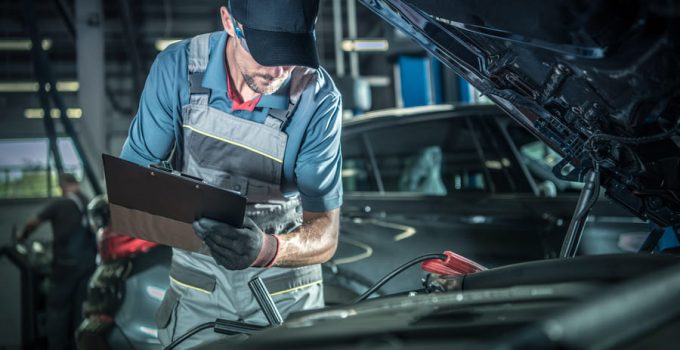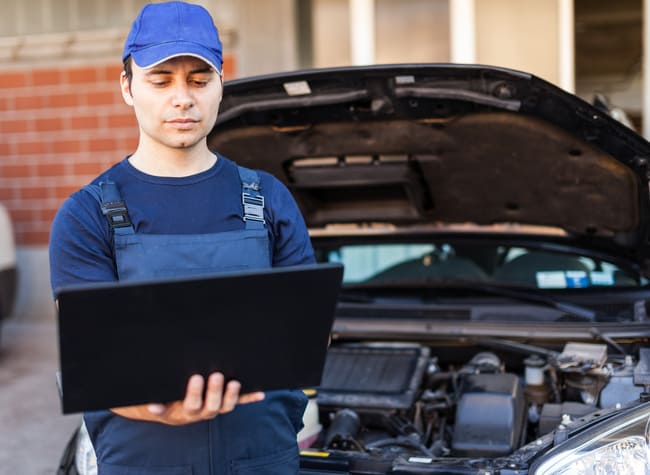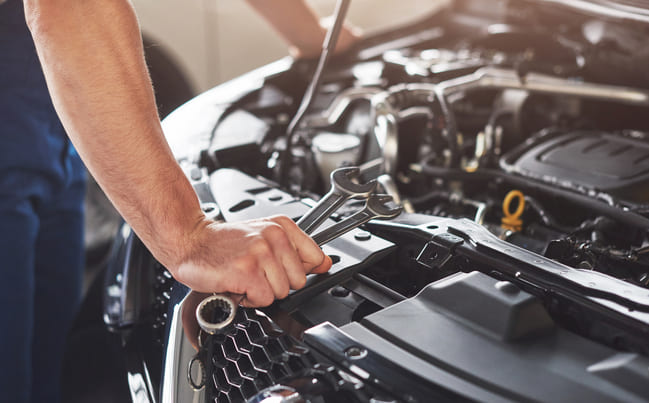
Every vehicle owner is familiar with the fact that the main inspection of the vehicle should be carried out every two years. This is mandatory so that your vehicle can continue to move on the road and your vehicle is also covered by insurance. But apart from the mandatory general inspection that a vehicle owner has to carry out, there is also the voluntary inspection of a vehicle. Here it is up to the vehicle owner himself whether he wants to carry out this inspection in a workshop. During the inspection, important components, systems and units of the vehicle are checked and checked for defects. For example, the components and units of the engine, as well as the mixture preparation, the transmission, the front axle, the drive shafts, as well as the braking and steering, as well as the tires and body, as well as the equipment and the electrics are tested here. But the condition of the engine oil is also inspected and the engine oil is usually also changed here. In addition, attention is paid to the brake fluid and the coolant and topped up if necessary. In vehicles with automatic transmission, the automatic transmission oil is also inspected and changed. These are some of the most common operations performed when taking your vehicle for inspection. Of course, you can express your own wishes and point out which systems should be given special attention.
Contents
Why carry out a voluntary inspection?

One often asks oneself why an inspection should be carried out voluntarily when this is not mandatory. While the main inspection has to be carried out every two years and the vehicle owner has no other choice, the inspection is not mandatory. But there are a few reasons why a vehicle owner likes to decide for an inspection.
If a vehicle has cost a lot or is still being paid off through financing, every vehicle owner would like to avoid the vehicle failing completely due to a defect in the engine or other important units. Because in the event of a defect in important units or systems, the insurance naturally does not apply, even if you have opted for fully comprehensive insurance. However, during an inspection, a gradual defect can be detected prematurely and thus usually worse things can be prevented. For example, if you drive with too little engine oil for a long time, this can have devastating consequences and, in the worst case, result in engine damage. However, during an inspection, a low level of engine oil can be detected in good time and remedied by changing the engine oil. This is not even checked during the main inspection. The condition of the brake systems, the tires and the lighting on the vehicle are of primary importance here.
An inspection is also useful if you want to make use of a manufacturer's guarantee. For example, if you bought a new car or a year-old car, you can still make use of the manufacturer's guarantee if a component on the vehicle fails. But to do this, you must be able to prove that you have taken sufficient care of your vehicle, i.e. that you have regularly inspected it. If you can prove this with the checkbook, the manufacturer is obliged to pay for the damage, provided that consumables such as brake pads are not involved.
But quite apart from that, it makes sense to regularly take your vehicle for inspection if you intend to resell your vehicle one day. If you place an ad on the internet or in the newspaper and can state here that your vehicle is “checkbooked”, i.e. has been regularly inspected, potential buyers can assume that your vehicle has been regularly checked for defects and thus most likely serious ones defects can be ruled out. For prospective buyers of your vehicle, this is a seal of quality. Because a vehicle with a full service history usually means that the vehicle has often been examined by experts.
Leave it alone There are three advantages that clearly speak for an inspection of your vehicle:
- If you can identify small defects or defects in your vehicle early on,
- You can use the manufacturer's warranty if necessary Make use of it if you can show that you have had an inspection carried out regularly and
- It will be easier to sell your vehicle in the future if it has a full service history.
How often should an inspection be carried out and what costs should I expect?
Basically, you can of course decide for yourself how often you want to have an inspection carried out. But it is usually recommended to have an inspection carried out every two years or after every 30,000 kilometers of mileage. If you can prove this in your checkbook, you're in good hands.
In terms of costs, it always depends on which inspection you choose. There is a minor inspection and a major inspection. The minor inspection usually involves changing the engine oil, checking the air filter, replacing the antifreeze, topping up the windshield wiper fluid and checking the level of the brake fluid. You can expect a bill of up to 300 euros for the small inspection. But of course this always depends on the manufacturer of the vehicle and the model, or whether you have special requests for the inspection.

In the major inspection, on the other hand, the amount of work is much more extensive. This is where all the assemblies, units and systems of the vehicle that are really relevant are checked. Of course, this includes the engine itself, but also the exhaust system, as well as the drive shafts, the gearbox, as well as the front and rear axles, as well as the steering, the tires and the bodywork in general, as well as the equipment of the car including its electrical system and lighting. In terms of price, you can expect to pay between 400 and 800 euros for a major inspection. But here, too, of course, it depends on how easy or difficult it is to access the vehicle's components, or whether you have expressed any special requests that may be particularly time-consuming to implement.
The conclusion and a Tip from CarTipsandmore: While the main inspection is mandatory, you are free to choose whether you want your vehicle to undergo a major or minor inspection. But you should know that an inspection brings you clear advantages personally. A vehicle with a full checkbook can always be better marketed, it also enables you to use the manufacturer's guarantee and you can be sure that defects in the assemblies and systems of your vehicle will be detected at an early stage. So CarTipsandmore recommends that you invest your money in at least a small inspection. Contact your trusted workshop and have your car inspected. You will see that it pays off!
